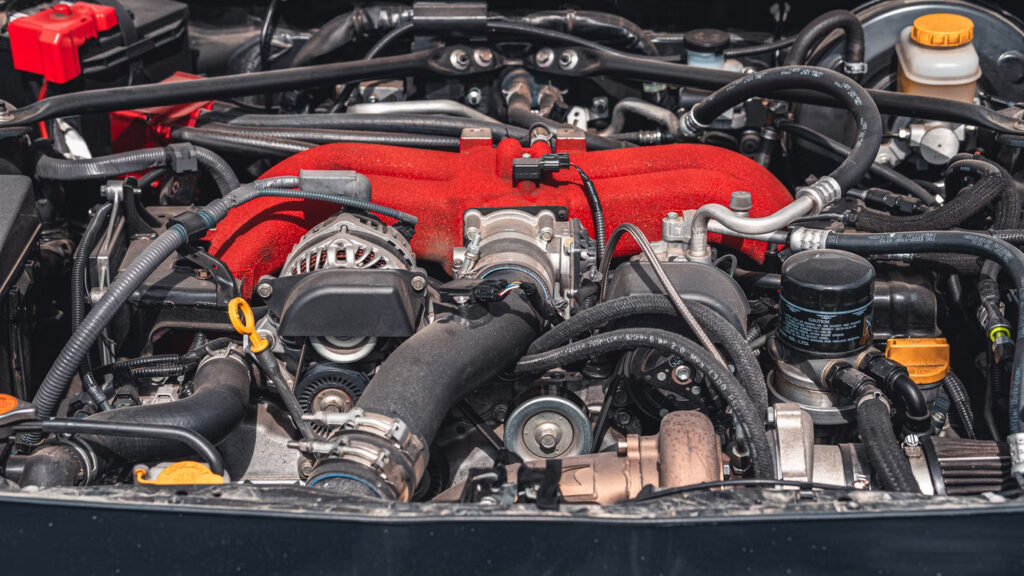Ever wondered if your car engines are waterproof? Or have you seen videos where cars are driven across pools of water and nothing happens to them?
In this article, we will be discussing whether car engines are waterproof, what to do if you want to waterproof your car, and what to do if water enters your car engine.
Are Car Engines Waterproof?
Most car engines are not waterproof simply because they need air for combustion to work properly. Car engines also have easily shorted components and circuits, making it very difficult to work properly if flooded. This is true for both diesel engines and gasoline engines.
Military trucks and jeeps, which are usually higher than most cars, do not have any issues with their engines getting flooded. Why? because the high nature of the cars helps lift them above the ground. On the other hand, diesel engines do not have spark plugs, which makes it very easy for them not to be affected by water.
What happens when water enters the engine?
When water enters your vehicle’s engine, it might cause serious damage to the engine and the car. Here are some problems that might happen.
Air intake
When water enters the engine, the first thing that happens is that it affects the air intake. Water enters into the internal combustion engine and puts the engine into a state known as hydro-locked. A hydro-locked engine is when an engine seizes or fails due to the ingress of a substantial amount of water in the cylinders. A vehicle that is hydro-locked is often referred to as being totaled.
Crankcase ventilation system
When water gets into the crankcase system of a vehicle, the engine can build up with gasses and damage internal components. To fix this you need to vent the gas
Electrical components
All car engines have a lot of electrical components and when water gets into the engines, it can short the component rendering them ineffective.
When water enters into the car’s engine, it can also build pressure and cause the piston to bend or break. When this happens, it might explode and shoot downward out of the engine.
How do I know if water gets into my engine?
There are two situations where you need to confirm if water has gotten into your car engine. When the vehicle is off and when the engine is running.
1- When the vehicle is running, you will notice a few symptoms. The first thing you will notice is that the engine will not be running smoothly. You may notice it not revving normally or having issues accelerating.
The next thing you may notice is a loud knocking coming from the engine. This is the sound of water getting into your cylinders. This loud knocking is usually followed by your engine coming to a stop.
2- If the vehicle is off and you think water might have entered the engine, then you should start by checking the air filter. If water has entered the vehicle, you may notice a dark area on the air filter or trapped sand and silt. Floodwaters carry a lot of dirt and debris with them, so finding silt or sand in the air filter is a sign that water has likely made it into your engine.
If you find sand or silt in the intake tube, that is also a bad sign. It means water has poured down from the air intake into the throttle body. The intake tube is the tube leading from the air intake, where the air filter is, to the throttle body.
After checking the intake tube, you will want to shine a light into the throttle body. If you see sand and silt there, you can know that water has made it into the engine.
At this point, you can be pretty sure that water has made it into the engine.
Should I wash my car engine?
In general, you should not wash your car engine. Why? because electrical components can be damaged by water if you do not know what you are doing. You should leave this activity to people with more experience.
However, there are specific situations when you should clean your car’s engine. That is when there is an oil or coolant leak, and you want to clean it up. If you won’t clean it up, it can damage various parts of your vehicle’s engine.
Conclusion
Entry of water into your car’s engine is something you should avoid, if possible. Also you should have regular maintenance scheduled. If you bought a used vehicle, one way to know the past history and if the car had regular maintenance is to run a vin check. This will help you know the health of the car.


